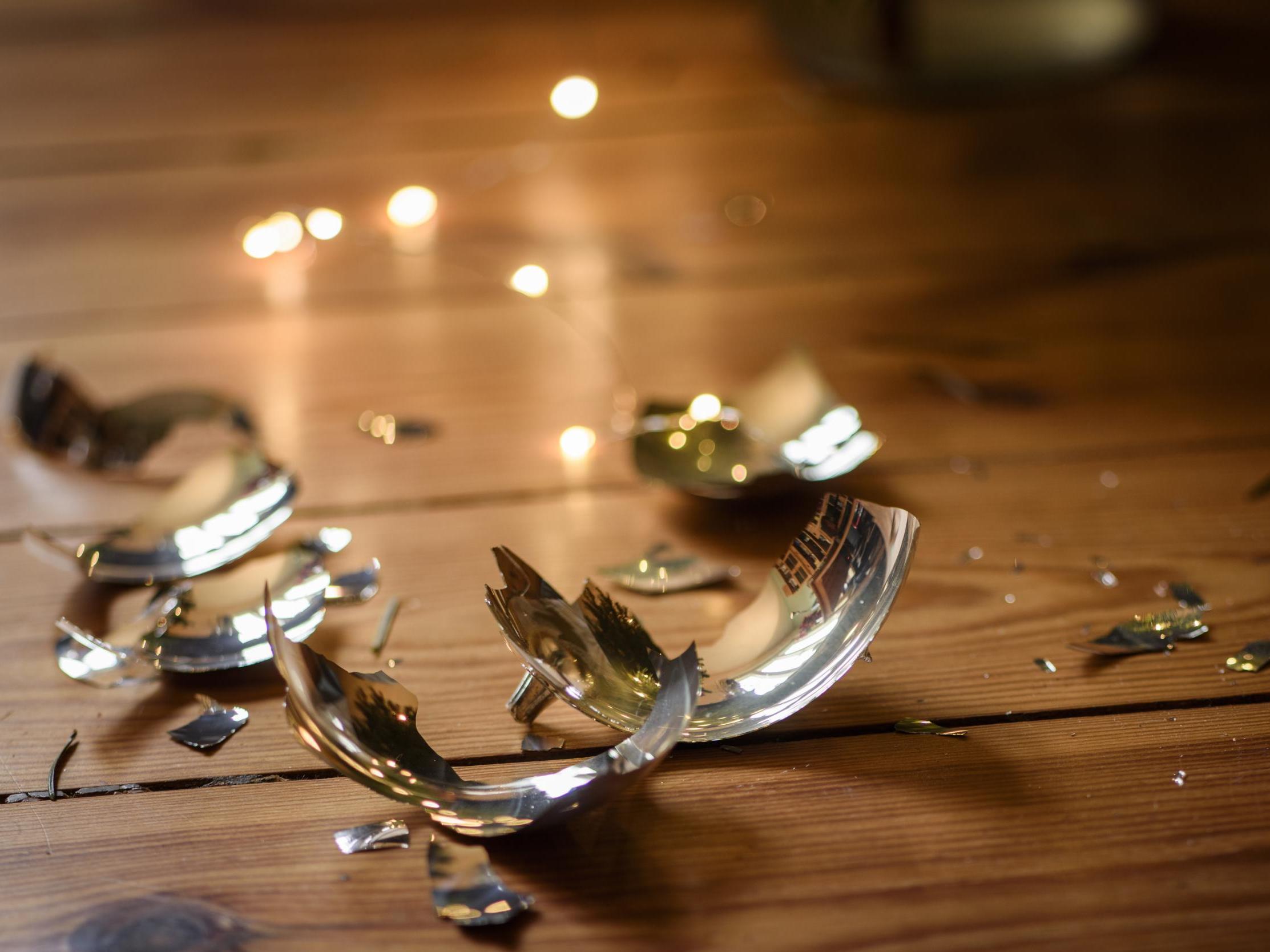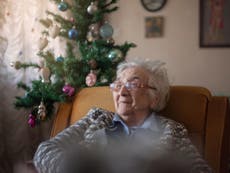When your mother is a dying alcoholic, nothing in the world seems less important than Christmas
At some point, I’ll stop hoping that the mum who faked Rudolph’s hoof-prints on the roof for me when I was little will resurface


I’ve always hated Christmas. Like many people with divorced parents, it has often meant managing the feelings and expectations of others – I’d happily go and spend it by myself, in a cabin in the woods, if I didn’t think that would cause more upset.
But what used to be an insignificant feeling – an eye-roll when Christmas music started playing, a strong aversion to Christmas decorations – has become something more this year.
I haven’t always hated it. One Christmas, my mum faked reindeer hoof-prints on the roof; I must have been four or five.
It’s one of my earliest memories. We lived in Hong Kong, on the top floor of a block of flats that I mostly remember being a pale, creamy pink. I don’t remember the hoof-prints themselves – just my mum, holding my hand, leading me up the stairs on Christmas morning to go and see them.
This was before my maternal grandmother died; before my sister was born; before we moved back to the UK; before my parents got divorced; before first I, and then my sister, came out as queer. Somewhere during that time, my mum’s drinking became heavy; a secret that she hid from all of us, until it almost killed her.
There is no good way to find out that your mum is an alcoholic.
My mum had been in hospital for a couple of weeks – inexplicably jaundiced and slowly becoming visibly unwell – when I went to visit after work one Thursday and found her not on the ward but in a side room, clearly in a lot of pain, no longer making any sense when she tried to speak.
Up until that point, neither me nor my sister nor my aunt knew what was wrong. My mum said she didn’t know, either. Soon after I found her in the side room, I went to the nurses’ station and asked, quietly, for someone to please tell me what was going on.
I don’t remember exactly what the nurse said, but I do remember the expression on her face when I asked her how my mum had contracted alcohol-related liver disease.
I remember sitting with my mum on the bed the next morning so I could be there for the consultant’s rounds, and I remember that I asked him why no one had told us what was wrong with my mum. She’d been in hospital for weeks, and we now knew she’d been diagnosed with liver disease nine months earlier. He looked me in the eyes and said, “Maybe you should ask yourself why you didn’t know.”
For the next week, every time I hugged my mum goodbye I thought it would be the last time I’d see her alive. Every day there were more tubes coming out of her; more drugs going in; more organs shutting down; more medical terms given to me by the nurses that I would write down and google when I got home.
My mum was very ill, and she wasn’t expected to live – but she did. After a month in hospital she was discharged, so thin that hugging her felt like it might crack her shoulder blades.
Eleven days before Christmas, I drove her back to the hospital for an appointment. The prognosis was not good. Liver failure, kidney failure and severe complications meant my mum had a 50 per cent chance of surviving the next year.
That was 12 months ago. My mum is still alive, but end-stage liver disease isn’t something you get better from – the doctors can’t treat it, all they can do is pump her full of vitamins and antibiotics. She’s so sick, I’ve only seen her outside the house twice in over a year.
Memories of my mum have been resurfacing in the run-up to Christmas. I think it’s because whenever someone asks what my plans are, I think about how my mum is still alive, when I didn’t think she would be.
I think about how I’ve spent the past year waiting for her to die and hoping that she won’t. I think about the eulogies I’ve written, in the notes on my phone, and her detailed instructions about who to call when she dies, with different people in charge of her will and estate and funeral wishes. They are all called Richard.
And I think about how mean she has been to the people who love her the most. How angry. The mum I want, when I’m feeling sad and alone, isn’t there anymore. She hasn’t been since I was small. In her place is someone so unwell, mentally and physically, that she’s been causing me pain my entire adult life.
At some point, I’ll stop hoping that the mum who faked Rudolph’s hoof-prints on the roof for me when I was little will resurface. I’ll stop hoping that I’ll be able to make my mum happy. But I’ll never stop hoping that my mum doesn’t die; while we wait for death to come.


Join our commenting forum
Join thought-provoking conversations, follow other Independent readers and see their replies